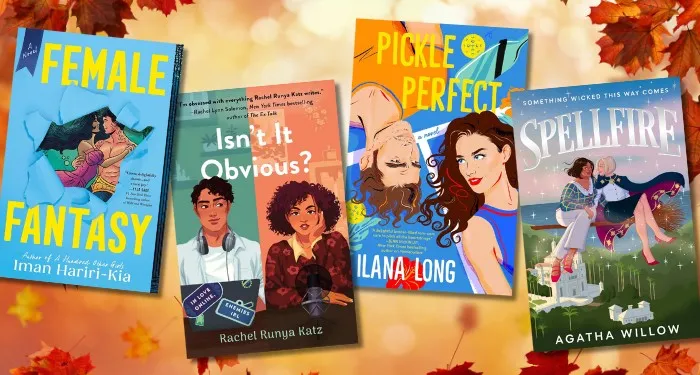For Authors
For many authors, the question of whether to use AI to edit their manuscripts goes beyond convenience or cost and touches on bigger, more ethical concerns. Does leaning on AI undermine the craft of writing? Does it take work away from human editors who depend on those jobs? And can a tool built on machine learning ever be trusted with something as personal as your story? If you’ve wrestled with these anxieties, you’re not alone. This debate isn’t just technical, it’s deeply tied to the values and identity of the author community.
Still, it’s easy to see why the question keeps coming up. Editing is one of the most time-consuming and expensive parts of publishing, and AI tools promise quick, affordable help with everything from proofreading to stylistic polish. Yet even if they prove useful, they aren’t a one-size-fits-all solution. That’s why Ginger is breaking it all down in today’s blog. He explores how AI can save indie authors money and frustration, where it inevitably falls short, and how its rise is reshaping the editing profession itself. The goal isn’t to push authors toward or away from AI, but to lay out the pros and cons so you can decide for yourself whether it belongs in your publishing toolbox.
Back in August, we invited Joseph Darlington to the Fully Booked podcast to discuss the launch of the second edition of his book Being James Bond. Amid all the great advice he offered, Joe made one controversial statement when he admitted to using AI to edit and proofread his work. Many listeners had opinions about that, as AI is something that many of us self-published authors have legitimate concerns about.
However, I thought the topic deserved examining in a blog posts, because as self-published authors, we’ve all been in the same situation as Joe: Staring at a finished manuscript, buzzing with excitement to hit “publish,” only to second-guess if it’s truly ready or not.
Editing is the unsung hero of the publishing process. It’s the barrier between a raw draft and a polished gem that readers will rave about… or roast in reviews. Getting somebody else to edit your book is a no-brainer. Spending money on an editor is one of the first and most important steps you can take toward becoming a “real” author and treating your writing like a business.
Skipping editing can lead to embarrassing typos, plot holes, or inconsistencies that tank your book’s reputation. There’s nothing worse than seeing the reviews for your latest book come in and noticing that one (or more) of them point out typos or other editing errors.
Editing is frustrating. The good news is that it’s not something any author should ever have to do themselves. It’s quite liberating to accept that this is one area in which we have to bring in outside help.
I truly believe no author can edit their own work because we’re so familiar with it (we wrote it, after all) that we’re always going to find our eyes seeing what we think we wrote, but being blind to the actual words on the page—including the typos. I speak from bitter experience!
But editing isn’t cheap. Hiring a real human being to read your entire manuscript and spot all the errors and inconsistencies can easily cost upwards of a thousand dollars, as well it should, because it will take a diligent editor hours of their life to accomplish.
Which has led many people to take Joe’s approach. After all, isn’t this the kind of service AI was designed to do? I agree that we don’t want to rely on AI to write our books and articles, but I’m certainly interested in the idea of letting it handle something time-consuming and detail oriented like editing.
But in an era of AI tools promising quick fixes to all sorts of problems, the big question is: Can we trust machines to handle this crucial step?
In this article, and drawing from my own experiences, I’ll explore why editing matters, the rise of AI in this space, its pros and cons, and how to strike a balance between relying on artificial or human intelligence.
I hate editing
Once upon a time, I used to edit books for other authors.
At the time, I thought it was a great side gig—helping indie writers refine their stories while earning a bit on the side. Editing introduced me to many talented writers, helped me make new friends with writers from all over the world, and kept me in Stella Artois when the budget was tight.
But ultimately, I gave up editing after a couple of years for exactly the same reason I abandoned ever trying to edit my own books, because it’s an incredibly difficult, time-consuming process.
I’d spend hours poring over other writers’ manuscripts, fixing grammar, suggesting structural tweaks, and hunting for inconsistencies, only to live in fear of those dreaded emails weeks or months later saying: “Hey, you missed this typo on page 47.”
Every author I ever worked with was super cool and understanding about it, but it happened more than once, and it stung every single time. I’ve always had a chip on my shoulder about providing real value to the people I accept money from, and no matter how understanding the authors were about it, I felt like a failure every time they pointed out something that I’d missed.
But editing for other people requires the same discipline as editing your own books, and is the reason I don’t do either any longer. Human error is inevitable; fatigue sets in, and even the sharpest eyes glaze over repetitive sections. That’s the inherent risk of relying solely on real, human people for editing. Even the best editors can be fallible, distracted by life, and prone to zoning out.
AI doesn’t have any emotional reaction to editing
And that’s when AI platforms started to look interesting. AI has already revolutionized editing and proofreading over the past decade. Tools like Grammarly, launched in 2009, started with basic grammar and spell-checking, using rule-based algorithms to flag errors. By the 2010s, machine learning advanced these into more sophisticated aids, like ProWritingAid and Hemingway App, which analyze style, readability, and sentence structure.
The real game-changer came with large language models (LLMs) like OpenAI’s ChatGPT in 2022 and xAI’s Grok in 2023, enabling contextual suggestions, rephrasing, and even developmental feedback.
Today, AI can scan entire manuscripts in minutes, suggesting improvements for flow, consistency, and tone. Platforms like Spines AI integrate editing into full publishing workflows, empowering indies to self-edit without breaking the bank.
This development has had profound impacts on the editing industry. On one hand, AI streamlines processes, reducing editing time by up to 30% and allowing authors to focus on creativity.
However, as more and more self-published authors turn to free or low-cost AI tools, ethical concerns start to appear. Chief among these, for me at least, is the knowledge that human editors are feeling the pinch as AI grows in popularity.
I was an editor back when you could earn serious money doing it. Freelance rates for copyediting used to average $30-50 per hour. But with AI now handling basics for thousands of authors, demand has been steadily dropping, displacing many editors who used to rely on indie editing gigs to pay their bills.
A 2024 study of editors and proofreaders found many perceive AI as a threat to their livelihoods, with concerns about job automation in routine tasks like proofreading. While AI hasn’t caused mass unemployment yet, it’s definitely shifting the market: Editors who used to offer basic proofreading services must now specialize in higher-level services, like cultural sensitivity reads or genre-specific advice, to stay competitive. For self-published authors, the rise of AI does offer cheaper editing options, but many of us are concerned about the loss of real human expertise that enriches the community.
AI is here to stay
Despite all that, we have to face the facts. Regardless of the challenges and ethical concerns, AI isn’t going anywhere, and it offers clear advantages for editing your books, especially in an indie industry where budgets are famously tight.
The first advantage is speed. AI processes thousands of words instantly, freeing you to iterate faster.
The second benefit is cost-effectiveness. Tools like Grammarly Premium ($12/month) or free versions of ChatGPT are attractive options in comparison to hiring a pro at $500+ per manuscript.
Thirdly, AI objectively has advantages over human editors, at least at some types of editing. AI doesn’t bring biases or preferences. It applies rules consistently. But the biggest win? AI won’t zone out and skim sections, missing typos or errors, something I caught myself doing as an editor, especially late at night.
We have to face the truth. Humans tire, get bored with dense prose, and commonly overlook issues in familiar text. In comparison, AI scans every word with machine precision, catching repetitive phrases, passive voice, or punctuation errors that would slip past weary human eyes.
Like the Terminator, AI is tireless, relentless, and methodical—making it ideal for basic editing tasks like proofreading marathons, which don’t present the ambiguity that you’ll find in developmental or copy editing, where human expertise continues to provide real value.
How to use AI for editing
So, if you’re sold on trying AI to edit your manuscripts, here’s a quick bullet-point guide to using a system like Grok (built by xAI) to get the job done. Grok’s conversational interface makes it user-friendly for indies, and the basic service is free for everybody with a Twitter account.
Here are the steps you need to take:
- Prepare Your Manuscript: Break it into chunks, say, 1,000-5,000 words per query, to avoid overwhelming the AI. Upload or paste text directly into the chat.
- Start with Proofreading: Ask Grok to “proofread this section for grammar, spelling, punctuation, and typos.” It will highlight errors and suggest fixes, often with explanations.
- Check for Style and Readability: Query: “Analyze this excerpt for sentence variety, passive voice, and readability. Suggest improvements to make it more engaging.” Grok can flag wordy sentences or overused words.
- Focus on Consistency: Paste scenes and ask: “Check for inconsistencies in character descriptions, timeline, or terminology.” While not perfect, it catches basics like name spellings.
- Seek Developmental Feedback: For deeper edits, say: “Provide suggestions on plot pacing, character development, and dialogue in this chapter.” Grok draws from vast training data to offer ideas.
- Iterate and Refine: Apply changes, then re-query: “Review this revised section and confirm if issues are resolved.” Use multiple passes for layers of polish.
- Combine with Human Input: Finally, cross-check AI suggestions against your own human voice, don’t accept everything it changes blindly.
This approach can elevate your draft without costing a dime, but it’s not flawless.
What to be aware of
As convenient and affordable as it is, the disadvantages of trusting AI to edit your book can’t be ignored. It starts with AI’s lack of narrative context. AI excels at surface-level fixes but struggles with nuance, subtlety, or story-specific logic.
For instance, in one of my romance books, my human editor spotted that the heroine had a “landing strip” of pubic hair in one intimate scene, but I’d described her as clean-shaven in another—a continuity error tied to character grooming habits that Grok probably wouldn’t be paying attention to (although it is spearheaded by Elon Musk, so anything is possible.)
Later, my human editor pointed out the heroine removed her panties at the start of a sex scene, only to remove them again just paragraphs later! These aren’t just typos, they’re narrative elements that require understanding the scene’s flow, character arcs, and emotional beats to keep consistent. This is context AI often misses because it processes text linearly without “reading” the full narrative or understanding its intent. AI might flag repetition, but not why it’s inconsistent with the plot.
Other pitfalls include hallucinations (inventing “facts” or suggestions), cultural insensitivity (missing biased language), and over-correction (sterilizing your unique voice). Plus, AI lacks empathy. It can’t gauge if a plot twist feels earned or if dialogue rings true to human emotion.
My two cents
We can’t ignore AI as an option for editing, and we’re going to have to forgive the growing number of authors who turn to it when getting their manuscript ready for publication.
My opinion is that a human editor remains the best choice for developmental editing (big-picture structure, pacing, character depth) and copy-editing (line-level clarity, consistency), as they grasp context that AI can’t. Humans bring intuition, genre knowledge, and creativity to elevate your story beyond mechanics.
That’s not to say AI doesn’t have its place, but it should only be relied upon for proofreading, where it’s arguably actually better than humans because it won’t miss anything. There’s no fatigue, no skimming, and no drifting off into daydreams.
For self-published authors, a hybrid approach seems like the most reasonable: Use AI for initial passes, then hire a professional editor to do the heavy lifting.
But that’s just my opinion. What do you think? Have you tried AI editing, or do you still swear by human editors? I’d love to hear about your experiences and opinions in the comments section below. Let’s discuss how to make our manuscripts shine affordably and ethically.
Share this blog
About the Author

Ginger is also known as Roland Hulme - a digital Don Draper with a Hemingway complex. Under a penname, he's sold 65,000+ copies of his romance novels, and reached more than 320,000 readers through Kindle Unlimited - using his background in marketing, advertising, and social media to reach an ever-expanding audience.



















 English (US) ·
English (US) ·